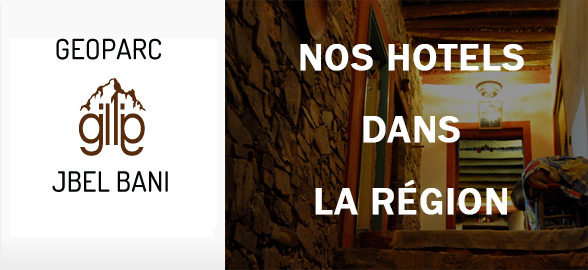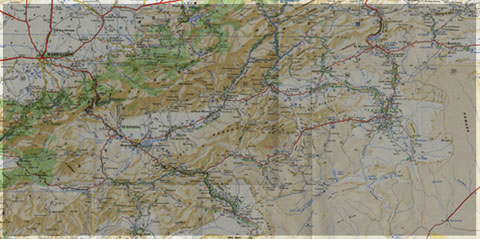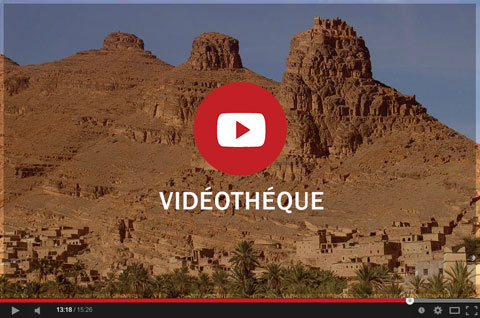Recherchez sur le site !
Recherche avancée / SpécifiqueCatégories publications
+ Sciences De La Terre - Archéologie - Astronomie - Spéléologie - Ecologie - Pédologie - Volcanologie - L'hydrogéologie - Géomorphologie - Minéralogie - Pétrologie - Paléontologie - Géologie + Climatologie - Réchouffement climatique - Changement climatique + Plantes - Plantes Aromatiques - Plantes médicinales + Zoologie - Faunes + Botanique - Flors + Sciences humaines - Géo Eco Tourisme - L’anthropologie - L'Histoire - Démographie - Sociologie - Géographie - Patrimoine culturel
Géo éco tourisme inclusif

Géoparc et Recherche Scientifique
Le coins de l’étudiant



Blog Géoparc Jbel Bani
World Journal of Educational Research
ISSN 2375-9771 (Print) ISSN 2333-5998 (Online)
Vol. 9, No. 3, 2022 www.scholink.org/ojs/index.php/wjer
Original Paper
A New Phase in the History of Education for Sustainability.
The Emergence of Territorial Education in a Post-Covid Recovery Period
Sandrine Simon
1 CeiED, Universidade Lusófona de Humanidades e Tecnologias, Lisbon, Portugal
* Sandrine Simon, CeiED, Universidade Lusófona de Humanidades e Tecnologias, Lisbon, Portugal
Received: June 2, 2022 Accepted: June 25, 2022 Online Published: July 6, 2022 doi:10.22158/wjer.v9n3p75 URL: http://dx.doi.org/10.22158/wjer.v9n3p75
Abstract
The current pandemic has acted as a catalyst for chain reactions on issues such as the decline of certain industries, job losses and problems of food transportation. In a “globalized world”, connections require re-organizing. More than ever, the economic, environmental and social un-sustainability of our cities is exacerbated. Education for sustainability could help societies to address such vulnerabilities and recover from the pandemic.
With a focus on cities, this article explores the emergence of “Territorial Learning” (TE). It illustrates the importance of taking the (geographical, cultural and socio-economic) context into account when contributing to education for sustainability as well as the operationalization of this concept and the identification of strategic priorities, participants in the learning process, and skills needed to ensure that learning outcomes lead to actions that will facilitate the transition to more resilient societies. The article explains the recent emergence of TE and its links with education for sustainability and global citizenship. It then illustrates how TE can help in dealing with two urban priority issues (food security and urban governance) and develop skills for sustainability. Finally it suggests some areas for future research, if TE is to help with the recovery of post-pandemic cities.
Keywords
Territorial Education, skills for sustainability, resilient cities, food security, participatory urbanism
1. Introduction
The focus of this article on education for sustainability is Territorial Education (TE)—an approach that highlights the importance of the context within which learning is taking place, not only from a bio-geo-physical perspective, but also from a socio-economic and political one. In all initiatives on new educational paths for sustainability, research has demonstrated that sustainability-oriented programs could not be successful unless people directly concerned by them were also involved in their design and running (Healy et al., 2013). This implies an appropriate size of activities, at a manageable scale. This conclusion emerged from decades of discussion, research, work on official texts and declarations, aimed at identifying how the education system could play a role in transforming our societies into more sustainable ones. It was also boosted by the various crises we have been recently going through (e.g., the Covid pandemic, which has itself exacerbated the effects of climate change, or “The coming food catastrophe”—May 2022 issue of The Economist), that led many to question globalization and its effects (Innerarity, 2020). Within the educational system itself, doubts have also been raised concerning the effects that education for sustainability have had, in practice, so far. High skepticism is accompanied by a strong will to keep on improving the impact that education at all levels, be it informal or formal, can have on improving the situation. Fien (2020, p. 1), who explored the history of environmental education over the past 30 years, showed that “student levels of awareness of key concepts for sustainability are low, with few able to correctly define such essential concepts as the precautionary principle and sustainable development which underpin sustainability”. Yet, education is still viewed as the prerequisite to achieving Sustainable Development Goals (Kioupi & Voulvoulis, p. 201; Lewin, 2019). However, “ambitious initiatives to transform education for the 21st century in order to (re) introduce concepts of-and skills for-environmental protection and sustainability are going to require enlightened leadership and governance structures for scalable, system-wide reform” (Howard et al., 2019, p. 1).
Table 1 summarizes the historical background regarding the evolution of education for sustainability and helps in understanding where we currently stand.
Taking the city as our territory of interest, we investigate here to what extent TE could provide an appropriate participatory learning approach to operationalize sustainability principles and make cities more resilient. The article explains the recent emergence of TE and its links with territorial development, global citizenship and education for sustainability. It then illustrates how practicing TE relates to building resilience in cities—in particular, how it can help us to deal with two priority issues that are of particular relevance in post-pandemic cities (food security and circular economies) and how it can equip learners with skills that are appropriate to facilitate a societal transformation towards sustainability. Finally, two areas for future research are suggested if TE is to help with a broader recovery, in a post pandemic world: linking TE and citizen science to strengthen urban food security, and integrating TE into urban governance to encourage and monitor circular economies.
PDF Article Complet
Source web par : Sandrine Simon
Les tags en relation
Dictionnaire scientifique
Plus de 123.000 mots scientifiques
Les publications
Géo parc Jbel Bani

Circuits & excursions touristiques

cartothéques


Photothéques
Publications & éditions




